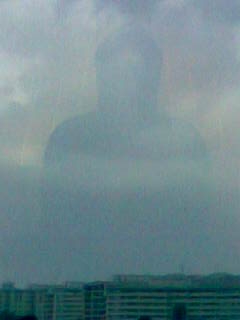------------------------------------------------------------------------------
The politics of reincarnation
------------------------------------------------------------------------------
April 3, 2007
Economist.com
Our Tokyo bureau chief meets the Dalai Lama
OUTSIDE Dharamsala is the Tibet Transit School, a cluster of boarding houses
with a view over the valley. It offers four years of schooling to Tibetans
who missed out in China. Many students are in their 20s. They say they made
their way from Tibet with the intention of enrolling, and most say they will
return after they have finished, older and wiser.
The mood on campus is cheerful. A gaggle of young men are kicking up a
ruckus. They beckon me over. I ask what they are up to. In amazingly good
English, one replies that they are preparing for an English-language debate.
He is proposing the motion that money can't buy you happiness. "And I," says
a wild beaming long-haired Tibetan, "am opposing it." What did I think?
I am taken to the art rooms by one of the crowd. He shows me his meticulous
Buddhist wall paintings. Next to them is a finely rendered charcoal portrait
of a fellow art student, a young nun with a shaven head. And next to her is
a drawing of a naked Indian woman in the come-hither pose found mainly in
those kinds of magazines that tend to get circulated in male dormitories.
Tigers populate some of the wall paintings. Around Dharamsala, I had been
curious to learn more about tigers and Tibetans' attitudes to them. After
all, in Tibet the finest young blades would wear fabulous chuba, long
traditional coats adorned with tiger skins and exotic furs. Until, that was,
the Dalai Lama issued an edict during an important tantric teaching held a
year ago in southern India. Tibetans' taste for tiger and other skins, the
Dalai Lama said then, made him ashamed. Not only did it ravage wildlife
populations; it was against Buddhism.
News of the Dalai Lama's statement spread literally like wildfire in Tibet
and in Tibetan-populated parts of Chinese provinces. Great piles of chuba
were set alight, sending up acrid plumes of smoke. The street prices of rare
tiger, snow leopard and otter pelts plummeted. Chinese officialdom was at
first utterly confused by this bonfire of the vanities. And then alarmed.
The arson was deemed unpatriotic. The Dalai Lama was denounced, yet again,
for "anti-social" tendencies. Tibetan newsreaders were ordered to appear
wearing fur trim. In Qinghai province, the television station sent out an
urgent plea for skins to the local natural history museum.
At the transit school it is clear that the Dalai Lama's word is revered by
the young as much as by the old. It has ensured that Tibetans' struggle for
their own voice is uniquely non-violent-something the Chinese appear
incapable of acknowledging.
Yet late-night conversations with younger political activists around
Dharamsala, many of them western-educated, bring out a strident
impatience-not with the Dalai Lama, but with counsellors who advise on his
"middle way" approach. This amounts to a compromise whereby the Dalai Lama
would renounce Tibetan independence in exchange for real autonomy for his
people in Tibet and in neighbouring provinces. But to open with this offer,
some of the younger crowd say, is to give away the store to China.
The following day I see the Dalai Lama himself, who talks for a while about
non-violence. Then, leaning forward, he fixes me eye-to-eye, and discusses
the question of restlessness among the young. He says: "There are
indications of frustrations among the new generation. In the 1980s it was
mainly monks and nuns who protested in many parts of Tibet. Now it's
students. Inside and outside Tibet, these younger ones are more
critical.There's an idea floating around. While the Dalai Lama's alive, we
have to follow his advice. But once he's gone, we have to find different
ways to carry on."
Certainly, the Chinese Communists want to be rid of this turbulent priest,
now 72. They want, in effect, the right to control the process of his
reincarnation, which is to say, they want to be sure his successor will be
tame. "There's something quite strange about these people taking an interest
in my reincarnation," says the incumbent, and pauses, looking indignant.
"It's none of their business!". Another pause, and then the Dalai Lama falls
back into his armchair with a trademark guffaw.

